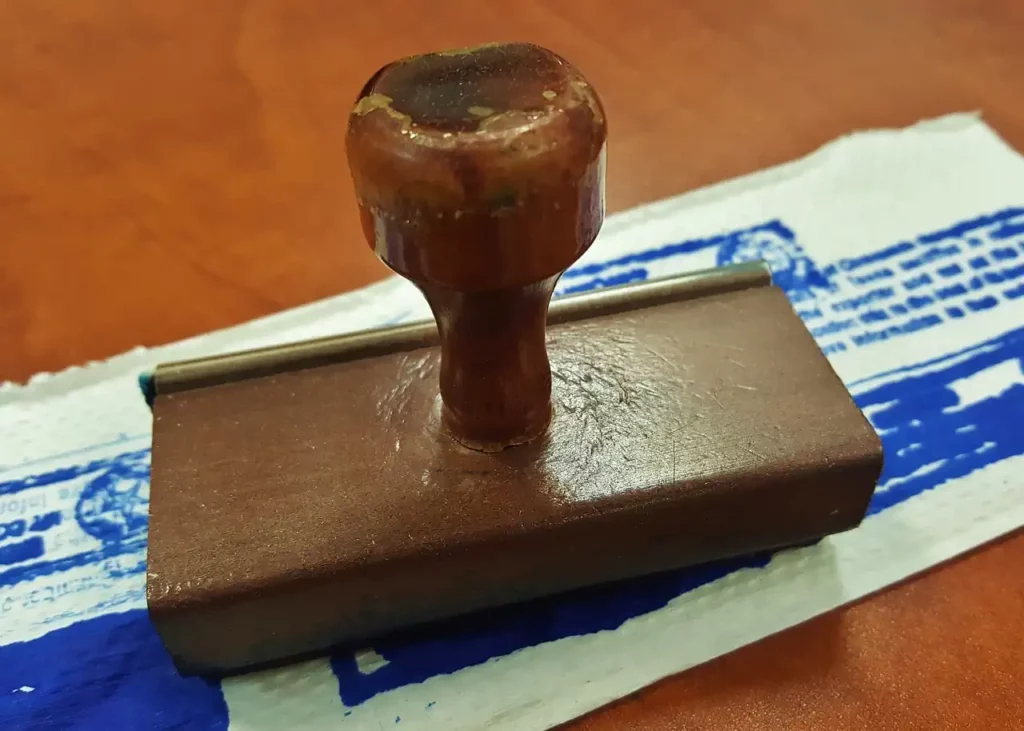How To Make Money As a Notary in 2023 (Complete Guide)
How To Make Money As a Notary is a topic that many notary publics are interested in and in your role as a notary public is not only to witness the signing of documents, administer oaths and certify that a document is a true and accurate copy of the original, but also to explore the opportunities to make a decent income. Notarizing documents and providing mobile notary services are just some of the ways that notaries can make money.
In this article, we will dive into the topic of “How To Make Money As a Notary,” discussing traditional and newer opportunities, providing tips on maximizing earning potential and building a successful notary businessand whether you’re a new notary or an experienced professional, this guide will help you understand the different ways to make money as a notary and turn your passion into profit.
What is a Notary?

A Notary is a public official who is authorized by the government to perform certain legal functions, such as witnessing the signing of documents, administering oaths, and certifying that a document is a true and accurate copy of the original and notaries are also responsible for maintaining a record of their activities, which is known as a notary journal but remember that notaries play an important role in preventing fraud and protecting the integrity of legal documents.
The duties and responsibilities of notaries vary by country and state, but typically, notaries are required to verify the identities of the people who appear before them, ensure that the parties involved understand the documents they are signing, and keep accurate records of their activities. Notaries must take an oath of office and are usually required to pass an exam and obtain a commission from the government. Notaries can also be responsible for maintaining the Notary Public Seal or stamp, which is used to identify and authenticate notarized documents.
It’s important to note that notaries are not lawyers and cannot provide legal advice, but they can help ensure that legal documents are completed and executed properly.
How Much Money Can You Make As a Notary?
Earning income as a part-time notary depends on the number of signings scheduled and the rate charged for each signing and according to the Bureau of Labor Statistics (BLS), the median hourly wage for notaries public in the United States is $15.62 per hour.
Butmany notaries charge more than this, with some charging $50 or more per signing and the number of signings that a notary can schedule per week can vary greatly depending on factors such as location, availability, and marketing efforts.
To calculate an estimate of potential income, a notary can multiply the median hourly rate by the number of hours they plan to work per week and it is important to note that the median salary for notaries is $50,294 per year, but it can vary greatly depending on the location, experience, and demand.
How To Make Money As a Notary
So you want to know different ways how to make money as a notary and you want to make some extra cash but you don’t know how to do it, than you come to the right place!
Notarizing Documents
Notarizing documents is the process of verifying the identity of the person signing a document, ensuring that the person understands the contents of the document, and affixing the notary’s seal or stamp to the document and the notary then records the details of the transaction in their notary journal. Notarizing documents is the most common way for a notary to make money, as it is a service that is in high demand from individuals and businesses.
There are different types of documents that can be notarized, such as deeds, mortgages, loan documents, and power of attorney forms and for example, a person buying a house will need to have the deed notarized, and a person borrowing money will need to have loan documents notarized.
Mobile Notary Services
Mobile notary services is when a notary will travel to the client’s location, either their home, office or any other place they specify, to notarize documents because this service is particularly beneficial for clients who are unable to come to the notary’s office, such as the elderly, people with disabilities, or people who are bedridden. It can also be beneficial for people who are working and cannot take time off during office hours, or if the notary’s office is not accessible to them.
Offering mobile notary services can be a great way for a notary to make money, as it allows them to reach a wider range of clients and increase their earning potential and as a mobile notary, you can charge a higher fee for your services, as you will be spending more time and resources traveling to the client’s location.
Signing Agent Services
A signing agent is a notary public who specializes in the mortgage industry and facilitates the signing of loan documents for borrowers and signing agents are responsible for meeting with borrowers, reviewing loan documents, and ensuring that the documents are signed and notarized correctly. They also ensure that the borrowers understand the contents of the documents they are signing, and that the borrowers are who they claim to be so signing agents also keep accurate records of their activities and ensure that the documents are returned to the lender or title company in a timely manner.
Being a signing agent can be a good option for notaries who want to specialize in the mortgage industry, as it can provide a steady stream of income and that is why signing agents are often hired by title companies, mortgage companies, and other organizations that are involved in the mortgage process.
Notary Classes and Training
Notary classes and training refer to the educational courses and training programs offered by notaries to individuals who want to become notaries or to those who want to learn more about notary practices and procedures. These classes and training can be conducted in-person, online, or through webinars, and they may cover topics such as notary laws and regulations, document execution, recordkeeping, and notary ethics.
Notaries can make money by teaching classes and offering training on notary practices and procedures in different ways, such as:
- Offering in-person classes in community colleges or adult education centers.
- Creating and selling online training programs, such as video courses, e-books, or webinars.
- Providing on-demand training sessions to individuals and businesses.
- Offering consulting services to new notaries and businesses that need help setting up and running their notary practice.
Notary Supplies:
Notary supplies are the materials that notaries use in the notarization process, such as notary seals or stamps, journals, and bonds. because notary seals or stamps are used to identify and authenticate notarized documents, journals are used to record the details of notarization, and bonds are insurance policies that protect notaries from errors and omissions..
Notary Public Liability Insurance:
A Notary Public is a public official appointed by the state government who acts as an impartial witness to the signing of important documents, such as deeds, mortgages, and powers of attorney and notary Public Liability Insurance is insurance that protects notaries from financial loss in the event that they are sued for wrongful acts or omissions in the performance of their duties.
Online Notary:
As a notary public, one can make money by offering online notary services to individuals and businesses who need documents notarized but are unable to visit a physical location.
This could include remote workers, people with mobility issues, or businesses with employees in different locations and the notary can charge a fee for their services, which can be done on a per-document or subscription basis. Some states also have regulations for online notaries and the process of online notarization, so it’s important to check with state laws and regulations before starting to provide online notary services.
Notarizing for legal documents:
Notarizing for legal documents is a service provided by notaries public that involves verifying the identities of the parties involved in a legal contract or agreement and then affixing their official notary seal to the document.
Notarizing for immigration and travel documents:
Notarizing for immigration and travel documents is a service provided by notaries public that involves verifying the identities of individuals who are applying for visas or seeking citizenship, and then affixing their official notary seal to the related documents and notaries can make money by working with immigration attorneys and travel agencies to notarize these documents.
Notarizing for government agencies:
Notarizing for government agencies is a service provided by notaries public that involves verifying the identities of individuals who are submitting official documents to government agencies, such as birth and death certificates, marriage licenses, and other records and notaries can make money by working with government agencies to notarize these documents.
Notarizing for businesses:
A person who works with notary can make money by providing notarization services for businesses and this can include notarizing documents such as corporate bylaws, trademarks, and patents but the businesses may require notarized documents for various official purposes like for registering a company, for legal proceedings, or for filing patents.
Notarizing for schools and universities:
A person who works with notary can make money by providing notarization services for schools and universities. This can include notarizing documents such as transcripts, diplomas, and other educational records.
Schools and universities may require notarized documents for various official purposes like for issuing a degree certificate, or for issuing a diploma.
Notaries can charge a fee for each document they notarize and can also charge an hourly rate for their services. This person can establish long-term relationships with schools and universities and generate a steady stream of income.
Notarizing for foreign documents:
A person who works with notary can make money by providing notarization services for foreign documents.
This can include notarizing documents such as apostilles and authentications, which are necessary for documents to be recognized and accepted in foreign countries.
Individuals and businesses may require notarized documents for various official purposes like for immigration, work, or business purposes.
Notaries can charge a fee for each document they notarize and can also charge an hourly rate for their services. This person can establish long-term relationships with businesses and individuals and generate a steady stream of income.
Notarizing for Auto/Boat/Motorcycle/RV etc. Titles:
A person who works with notary can make money by providing notarization services for auto, boat, motorcycle, RV and other similar titles. This can include notarizing the documents related to ownership of these vehicles, such as titles, bill of sale, and other ownership-related documents. The Department of Motor Vehicles (DMV) or other similar organizations may require notarized documents for various official purposes like for registering a vehicle, transfer of ownership, or for legal proceedings. Notaries can charge a fee for each document they notarize and can also charge an hourly rate for their services.
Places To Offer My Notary Services

- Law firms: Notaries can work with lawyers and law firms to notarize legal documents such as contracts and agreements.
- Banks and financial institutions: Notaries can work with banks and financial institutions to notarize documents related to mortgages, loans, and other financial transactions.
- Government agencies: Notaries can work with government agencies to notarize documents such as birth and death certificates, marriage licenses, and other official records.
- Businesses: Notaries can work with businesses to notarize documents such as corporate bylaws, trademarks, and patents.
- Educational institutions: Notaries can work with schools and universities to notarize transcripts, diplomas, and other educational records.
- Immigration attorneys and travel agencies: Notaries can work with immigration attorneys and travel agencies to notarize documents for people applying for visas or seeking citizenship.
- Auto, boat and motorcycle dealerships: Notaries can work with auto, boat, motorcycle dealerships and other similar organizations to notarize the ownership titles.
- Online Notary Services: Notaries can provide online notary services, where the notary will verify the identity of the signer via a video call and then notarize the document.
- You can also offer your services on freelance platforms or advertise on social media, classifieds or local directories
How To Make Money as a Notary Online?
Notaries are public officials who witness and certify the signing of important documents. They play a critical role in preventing fraud and ensuring that legal documents are properly executed. But did you know that being a notary can also be a lucrative side hustle or even a full-time career? In this article, we will explore the various ways that you can make money as a notary, including some quick and easy tips to get started.
One of the most common ways to make money as a notary is to notarize digital documents. With the rise of remote work and online transactions, there is a growing demand for notaries who can verify the identity of signers and witness the signing of documents over video conferencing platforms. Another way to make money as a notary is to become a certified signing agent, which involves overseeing the signing of mortgage and real estate documents. Signing agents can earn anywhere from $75 to $200 per signing, depending on the complexity of the transaction.
Understanding the Role of a Notary
As a notary, you play an essential role in the legal system. You are an impartial witness who verifies the identity of signatories and ensures the authenticity of signatures on legal documents.
One of the primary functions of a notary is to prevent fraud. By verifying the identity of signatories, you help to prevent people from signing documents under false pretenses. Additionally, by verifying signatures, you ensure that the documents are legally binding.
Notaries are often required to administer oaths, which adds an additional layer of legal protection. By administering oaths, you ensure that signatories understand the legal implications of their actions and are not signing documents under duress.
It’s important to note that notaries are not attorneys and cannot provide legal advice. However, you are responsible for ensuring that the documents you notarize are legally sound.
Becoming a Notary
Becoming a notary is a great way to earn extra income on the side. However, before you can start notarizing documents, you must first become a certified notary public. The process of becoming a notary varies by state, but most states require you to complete an application, pass an exam, and receive certification.
To become a notary, the first step is to check your state’s requirements. You can find this information on your state’s government website. Once you have reviewed the requirements, you will need to complete an application and pay any associated fees.
Depending on your state, you may also need to take a notary training course or pass a certification exam. These requirements help ensure that you are knowledgeable about your duties as a notary and understand the legal implications of notarizing documents.
In addition to meeting the requirements set by your state, you must also be a legal resident of the United States and have a clean criminal record. Notaries are trusted to verify the authenticity of legal documents, so it’s important that they have a reputation for honesty and integrity.
Different Types of Notary Services
As a notary, you have the opportunity to offer various services to your clients. Here are some of the most common types of notary services:
Notarization
The most basic notary service is notarization. This involves verifying the identity of the signer and ensuring they are signing the document willingly and knowingly. Notarization can be done on a wide range of documents, including affidavits, deeds, contracts, and powers of attorney.
Online Notarization
With the increasing use of technology, online notarization has become a popular option for many clients. This involves notarizing documents electronically, and it can be done from anywhere in the world. Online notarization is especially useful for clients who are unable to meet with a notary in person.
Remote Online Notarization
Remote online notarization takes online notarization a step further. This allows the notary to notarize documents remotely, using audio and video technology to verify the identity of the signer. This type of notarization is becoming increasingly popular, especially in light of the COVID-19 pandemic.
Mobile Notary
A mobile notary is a notary who travels to their clients to perform notarizations. This is a convenient option for clients who are unable to travel to a notary’s office. Mobile notaries can notarize a wide range of documents, including real estate documents, loan signings, and wills.
Signing Agent
A signing agent is a specialized type of notary who is trained to handle loan signings. This involves notarizing a range of loan documents, including mortgages, refinances, and home equity loans. Signing agents must have a thorough understanding of the loan process and be able to explain the documents to the borrower.
Real Estate
Real estate transactions often require notarization. This includes notarizing deeds, contracts, and other documents related to the sale or transfer of property. Notaries who specialize in real estate transactions must have a thorough understanding of the process and be able to explain the documents to the parties involved.
Wills and Trusts
Notaries can also notarize wills and trusts. This involves verifying the identity of the signer and ensuring they are signing the document willingly and knowingly. Notarizing wills and trusts can provide an extra layer of protection and ensure that the documents are legally binding.
Setting Up Your Notary Business
Starting a notary business can be a lucrative venture, but it requires careful planning and execution. Here are some steps to consider when setting up your notary business:
Determine Your Business Entity
Decide what type of business entity you want to establish. You can operate as a sole proprietor, LLC, or corporation. Each entity has its own set of advantages and disadvantages. Consult with a legal professional to determine the best option for your business.
Register Your Business
Once you have decided on your business entity, register your business with the appropriate state and local agencies. This may include obtaining a business license, tax ID number, and other permits and certifications.
Choose a Location
Select a location for your notary business that is easily accessible and visible to potential clients. Consider leasing office space or operating from a home office.
Get Business Cards
Order professional business cards that include your name, contact information, and notary credentials. Distribute your cards to potential clients and other professionals in your industry.
Purchase Professional Notary Supplies
Invest in high-quality notary supplies, including a notary stamp, journal, and other necessary equipment. Consider purchasing additional supplies, such as document authentication and verification software, to enhance your service offerings.
Establish a Professional Online Presence
Create a professional website and social media profiles to market your notary business. Use search engine optimization (SEO) strategies to increase your online visibility and attract new clients.
By following these steps, you can establish a professional notary business that is well-positioned for success.
State Specific Information
Each state has its own specific requirements for becoming a notary public and earning income as a notary. Here is some state-specific information for those looking to become a notary public and make money in the following states:
Florida
To become a notary public in Florida, you must be at least 18 years old, a legal resident of the state, and able to read and write in English. You must also complete a three-hour education course, pass a state-administered exam, and submit to a background check. Florida notaries can charge up to $10 per notarization.
New York
In New York, you must be at least 18 years old, a legal resident of the state, and able to read and write in English. You must also complete a six-hour education course, pass a state-administered exam, and submit to a background check. New York notaries can charge up to $2 per notarization.
Colorado
To become a notary public in Colorado, you must be at least 18 years old, a legal resident of the state, and able to read and write in English. You must also complete a two-hour education course, pass a state-administered exam, and submit to a background check. Colorado notaries can charge up to $5 per notarization.
Indiana
In Indiana, you must be at least 18 years old, a legal resident of the state, and able to read and write in English. You must also complete a three-hour education course, pass a state-administered exam, and submit to a background check. Indiana notaries can charge up to $2 per notarization.
Louisiana
To become a notary public in Louisiana, you must be at least 18 years old, a legal resident of the state, and able to read and write in English. You must also complete a three-hour education course, pass a state-administered exam, and submit to a background check. Louisiana notaries can charge up to $5 per notarization.
Oregon
In Oregon, you must be at least 18 years old, a legal resident of the state, and able to read and write in English. You must also complete a three-hour education course, pass a state-administered exam, and submit to a background check. Oregon notaries can charge up to $10 per notarization.
Washington
To become a notary public in Washington, you must be at least 18 years old, a legal resident of the state, and able to read and write in English. You must also complete a three-hour education course, pass a state-administered exam, and submit to a background check. Washington notaries can charge up to $10 per notarization.
Alaska
In Alaska, you must be at least 18 years old, a legal resident of the state, and able to read and write in English. You must also complete a three-hour education course, pass a state-administered exam, and submit to a background check. Alaska notaries can charge up to $10 per notarization.
Arizona
To become a notary public in Arizona, you must be at least 18 years old, a legal resident of the state, and able to read and write in English. You must also complete a three-hour education course, pass a state-administered exam, and submit to a background check. Arizona notaries can charge up to $10 per notarization.
Hawaii
In Hawaii, you must be at least 18 years old, a legal resident of the state, and able to read and write in English. You must also complete a three-hour education course, pass a state-administered exam, and submit to a background check. Hawaii notaries can charge up to $5 per notarization.
Idaho
To become a notary public in Idaho, you must be at least 18 years old, a legal resident of the state, and able to read and write in English. You must also complete a three-hour education course, pass a state-administered exam, and submit to a background check. Idaho notaries can charge up to $5 per notarization.
Illinois
In Illinois, you must be at least 18 years old, a legal resident of the state, and able to read and write in English. You must also complete a three-hour education course, pass a state-administered exam, and submit to a background check. Illinois notaries can charge up to $1 per notarization.
Iowa
To become a notary public in Iowa, you must be at least 18 years old, a legal resident of the state, and able to read and write in English. You must also complete a three-hour education course, pass a state-administered exam, and submit to a
Earning Potential as a Notary
As a notary public, you have the potential to earn additional income by providing notary services. The amount of money you can make as a notary depends on several factors, including your location, the type of documents you notarize, and your experience level.
Notary Fees
Notary fees vary by state and type of notarial act. In general, notaries can charge a fee for each signature they notarize. According to the National Notary Association, the average fee for a notarial act is around $15, but fees can range from $0.50 to $25 or more per signature. It’s important to check your state’s notary fee schedule to ensure you are charging the correct fee.
Part-Time Income
If you’re looking to make additional income on a part-time basis, becoming a notary can be a great option. As a notary, you can set your own hours and work as much or as little as you’d like. Many notaries work on a part-time basis, providing services after their regular job or on weekends.
Experience Level
Your experience level as a notary can also impact your earning potential. New notaries typically don’t start out earning large fees, so it’s important to be patient and focus on gaining experience. As you become more experienced and build your reputation, you may be able to charge higher fees for your services.
Additional Income
In addition to charging fees for notarial acts, there are other ways to make money as a notary. For example, you can offer mobile notary services, which involves traveling to clients to provide notary services. You can also offer loan signing services, which involves notarizing loan documents for mortgage companies. These services often come with higher fees than traditional notarial acts.
Overall, the earning potential as a notary can vary widely depending on your location, experience, and the types of services you offer. However, with dedication and hard work, you can build a successful notary business and earn additional income.
Marketing and Growing Your Notary Business

One of the most important aspects of running a successful notary business is marketing. Without effective marketing strategies, it can be difficult to attract new clients and grow your business. Here are a few tips to help you market and grow your notary business:
Advertise Your Services
One of the easiest ways to market your notary services is to advertise them. Create a website and list your services, fees, and contact information. You can also create flyers and business cards to hand out to potential clients. Make sure to include your website and contact information on all your marketing materials.
Leverage Social Media
Social media is a powerful tool for marketing your notary business. Create social media profiles on platforms like Facebook, Twitter, and LinkedIn, and share information about your services. You can also join online groups and communities related to notary services to network with other professionals in your field.
Network and Get Referrals
Networking is another effective way to market your notary services. Attend local business events, networking groups, and chamber of commerce meetings to meet potential clients and other professionals. You can also ask your current clients for referrals to help grow your business.
Get Involved in the Community
Getting involved in your local community can also help you market your notary services. Volunteer at local events or sponsor a local sports team to increase your visibility and show your support for the community. You can also join local business organizations to network with other professionals and build relationships.
Overall, marketing and growing your notary business takes time and effort, but with the right strategies, you can attract new clients and build a successful business.
Becoming a Notary Signing Agent
Becoming a Notary Signing Agent (NSA) is a great way to increase your earnings as a notary. An NSA is a notary public who is specially trained to handle mortgage loan documents, and they typically earn more than a traditional notary.
To become an NSA, you will need to complete additional training and certification beyond your notary commission. The National Notary Association (NNA) offers a comprehensive training program that covers all aspects of the loan signing process. This training includes a course manual, online instruction, and a certification exam.
Once you have completed your training and passed your certification exam, you can start marketing yourself as a Certified Signing Agent. This designation will help you stand out from other notaries and increase your earning potential.
As an NSA, you will be responsible for guiding borrowers through the loan signing process and ensuring that all documents are properly signed and notarized. You will also need to be familiar with the various loan documents and be able to answer any questions the borrower may have.
Maintaining Your Notary Business
Once you have established your notary business, it is important to maintain it properly to ensure its longevity and profitability. Here are some key aspects to consider:
Surety Bond and Errors and Omissions Insurance
As a notary public, you are required to have a surety bond, which protects the public from any errors or omissions you may make while performing your duties. It is important to keep this bond current and up-to-date. Additionally, having errors and omissions insurance can provide an extra layer of protection in case of any claims or lawsuits. It is recommended to consult with a licensed insurance agent to determine the appropriate coverage for your business.
Fingerprinting
Most states require notaries to be fingerprinted as part of the application process. It is important to keep your fingerprints current, as some states require periodic re-fingerprinting. This ensures that your background check remains up-to-date and that you are in compliance with state regulations.
Proper Records
Keeping accurate records of your notarial acts is crucial to maintaining your business. It is important to keep a log of all notarial acts, including the date, time, and type of document notarized. This log should be kept in a secure location and updated regularly.
Notary Commission and Renewal
Your notary commission is the official authorization that allows you to perform notarial acts. It is important to keep your commission current and to renew it in a timely manner. Failure to renew your commission can result in the revocation of your notary status.
Leveraging Technology in Your Notary Business
As a notary, you have the opportunity to leverage technology to increase your efficiency, expand your client base, and ultimately make more money. Here are some technology-related strategies that can help you take your notary business to the next level:
Offer Online Notary Services
With the rise of remote work and digital transactions, online notary services are becoming increasingly popular. By becoming an online notary, you can offer your services to clients all over the world, without ever having to leave your computer. Online notarizations typically involve the use of video conferencing software to verify the identity of the signer and witness the signing of the document. To become an online notary, you will need to check with your state’s notary public regulator to see if online notarization is permitted and what the requirements are.
Embrace Digital Documents
Gone are the days of printing out stacks of paper documents to notarize. By embracing digital documents, you can save time, money, and paper. There are a variety of tools available that allow you to notarize digital documents, such as DocuSign, Adobe Sign, and Notarize. These tools usually involve the use of electronic signatures and digital certificates to ensure the authenticity of the document.
Use Technology to Manage Your Business
Running a successful notary business requires more than just notarizing documents. You need to manage your appointments, keep track of your clients, and handle your finances. By using technology to manage your business, you can save time and reduce errors. There are a variety of tools available that can help you manage your notary business, such as scheduling software, client management software, and accounting software.
Invest in a Good Computer
As a notary, your computer is your most important tool. You need a computer that is reliable, fast, and secure. Investing in a good computer can help you work more efficiently and reduce the risk of errors. Look for a computer with a fast processor, plenty of RAM, and a solid-state drive. You should also invest in good antivirus software and keep your computer up-to-date with the latest security patches.
In conclusion, leveraging technology can help you take your notary business to the next level. By offering online notary services, embracing digital documents, using technology to manage your business, and investing in a good computer, you can increase your efficiency, expand your client base, and ultimately make more money.
Common Challenges and Tips for Success

As with any business, building a successful notary business comes with its own set of challenges. Here are some common challenges and tips for success:
Competition
The notary industry is competitive, and it can be challenging to stand out from other notaries in your area. To overcome this challenge, it’s important to offer excellent customer service, be knowledgeable about your services, and market yourself effectively.
Demand for Notaries
The demand for notaries can fluctuate depending on the time of year and location. It’s important to be aware of the demand in your area and adjust your schedule accordingly. During peak times, you may need to be more flexible with your scheduling to accommodate your clients’ needs.
Scheduling
Scheduling can be a challenge for notaries, especially if you have a full-time job or other commitments. It’s important to have a flexible schedule and be willing to work evenings and weekends if necessary. Consider using scheduling software or apps to help manage your appointments and avoid double-bookings.
Weekends and Holidays
Notaries are often needed on weekends and holidays, which can be difficult if you have other plans or commitments. It’s important to be upfront with your clients about your availability and set clear boundaries. Consider charging a premium rate for weekend and holiday appointments to compensate for your time.
Holiday Schedule
During the holiday season, the demand for notaries can increase significantly. It’s important to plan ahead and adjust your schedule accordingly. Consider hiring additional help or partnering with other notaries in your area to ensure that you can meet the demand.
Overall, building a successful notary business takes time, effort, and dedication. By being aware of the common challenges and implementing these tips for success, you can set yourself up for success in the industry.
Conclusion
In conclusion, being a notary can be a profitable and flexible career or side hustle that allows you to earn extra money. With the right training and certification, you can start your own notary business or work for a company as a signing agent.
As a notary, you can charge fees for your services, which vary depending on the state and type of document you notarize. You can also offer additional services such as mobile notary services, loan signings, and remote online notarization to increase your earnings.
While becoming a notary requires some initial investment in terms of time and money, it can be a profitable venture in the long run. You can also use your notary skills in other professions, such as real estate, law, and banking, to increase your earning potential.
Frequently Asked Questions
Is becoming a notary a lucrative career?
Becoming a notary can be a great way to earn extra income, but it is important to have realistic expectations. While some notaries may earn a full-time income, for many it is a part-time or side job. The earning potential can vary depending on factors such as location, experience, and the type of notary work done.
What is the average income for a notary public?
According to National Notary Association, the average income for a notary public is around $15 per hour. However, this can vary depending on location, experience, and the type of notary work done.
What are some ways to increase earnings as a notary?
One way to increase earnings as a notary is to offer additional services such as loan signings or fingerprinting. Another way is to network with other professionals, such as real estate agents or attorneys, who may need notary services. Additionally, building a strong online presence and marketing oneself can help attract more clients.
How can a notary maximize their client base?
Networking with professionals in related industries and building a strong online presence can help notaries attract more clients. Joining professional organizations, such as the National Notary Association, can also provide opportunities to connect with other notaries and potential clients.
What are the highest paying notary jobs?
Some of the highest paying notary jobs include loan signings, real estate transactions, and legal document preparation. However, these jobs may require additional training or certifications.
What are the requirements to become a notary in different states?
The requirements to become a notary vary by state. Generally, one must be at least 18 years old, a legal resident of the state, and pass a background check. Some states also require notaries to complete training or pass an exam. It is important to research the specific requirements for the state in which one wishes to become a notary.
Related:







